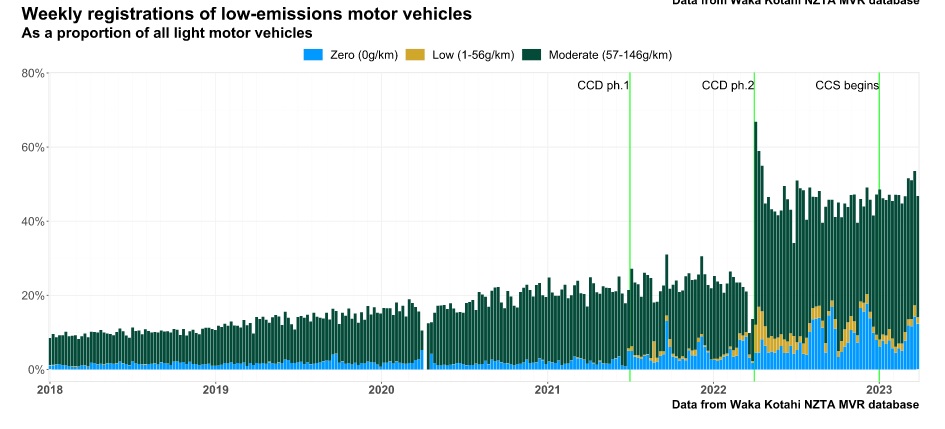Basicly: after about 2037, expected forestry credits exceed expected residual ETS-covered emissions, which will cause a collapse in the market, threatening our ability to cover non-ETS emissions (agriculture). Which means we need to fix the ETS long before then to stop it from happening.
While noting that its not really its place to develop policy, the Commission considers and dismisses a wide range of options. partly this is because its policy goal is muddled: encourage forestry, while avoiding "socially unacceptable" levels of tree planting. As someone who thinks that there isn't such a thing, that we need to move beyond net-zero to active drawdown, and that the long-term way to do this is to restore land to nature (or some semblance thereof), that seems like a gap. They're also weirdly unwilling to look beyond the status quo for agriculture, which means they miss the obvious solution: put it in the ETS, with no subsidies. That will increase ETS demand, pushing back that crossover-date. However, it doesn't solve the short-term problem of encouraging offsetting rather than emissions reduction, so its only part of the solution.
On how to solve that, I think there is an answer. The Commission has suggested limiting the amount of forest credits that can be used to offset emissions, and that might work (though it adds complexity). But that misses the real problem. At the moment, trees are a source of credits outside government control, the supply of which is uncapped and which therefore allow emissions above the ETS cap. In a sense, they're no different from the Russian fraud which crashed the ETS in its early years (except of course that trees are real, and we actually want them). The solution is to bring it under government control, by moving to a model where the government buys all forest credits (at a price based on average ETS prices, backed up by a set and rising reserve), and then recycles it into the ETS by auctioning it or using it to back free allocations. That encourages afforestation and discourages deforestation, helping to meet our Paris goals, while controlling supply into the ETS. This also lets them have more honest auction volumes, which map more directly to our desired emissions reduction pathway. If more trees are planted than we need to meet that pathway, great - the government banks the surplus, and we overachieve without crashing the price. If not, the government issues credits as it does at the moment. And if agriculture is in the ETS, and free allocations are eliminated, and there's no bullshit foreign credits, then everyone knows exactly how much we're allowed to emit, and can plan accordingly.

